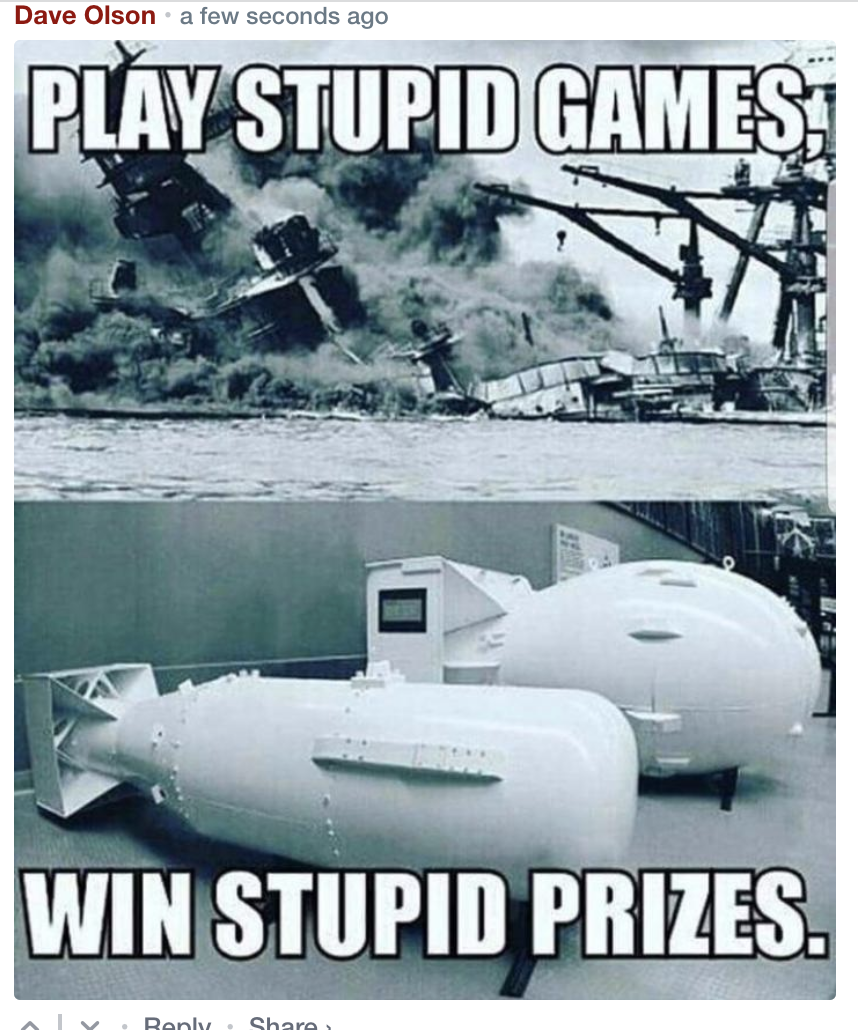Pearl Harbor Day
/A few days ago, Victor Davis Hanson posted an excellent article on the attack, “Misremembering Pearl Harbor” which he described as “tactically brilliant and strategically imbecilic”.
Like all of his work, Hanson has penned a fascinating, thoughtful essay, but one particular point alarms me, because, in view of the rapid push for the de-industrialization of the west and self-hatred for our country being inculcated into our children, I wonder if we could respond to a similar attack today? My guess is that we have neither the resources nor the will to do so.
Perhaps just as scary is the possibility that our enemies will also assume that we can’t, and won’t, and make the same mistake the Japanese did. The Neo-cons are still running Washington, and who knows what they’d do in that event?
“ …. And in turn, the Japanese cared even less for Axis solidarity when they reciprocated by signing their own nonaggression pact with Stalin in April 1941, just weeks before Operation Barbarossa, an agreement that would later persuade the Soviet Union that it no longer needed to worry about a second front on its eastern borders and could focus all its resources on the German invader. After April 1941, Japan assumed that whatever the ensuing relationship between Germany and Russia, it could now concentrate on the Anglo-Americans alone, and primarily with its navy that achieved parity with British and American sea- and airpower.
All these were logical considerations for a belligerent power intent on expanding an already ascendant Asian Empire into the Pacific. But such rationales were still predicated on faulty intelligence, a racist misreading of history, and little knowledge of the American people.
Tokyo had no real appreciation that the United States was already building a second fleet of modern carriers, battleships, cruisers, and submarines that would soon make the American navy larger than all the world’s fleets combined. Indeed, the Americans would launch over 145 aircraft carriers, including over 20 Essex fleet carriers, the most advanced in the world.
Tokyo had no inkling that the anemic Depression-era American economy was capable of rapid expansionary growth. More specifically, the American gross natural product by late 1944 would outpace all five economies of the major combatants—Germany, Italy, Japan, Great Britain, and the Soviet Union—combined.
Unlike the Germans, Japanese, or Soviets, the Americans and the British were the only two World War II powers with the global reach, lift, transport, and resources to fight a two-front war successfully. In contrast, Japan would quickly learn that its decade-long presence in China was an open wound that drained off needed resources in its simultaneous wars with the Americans and British.

